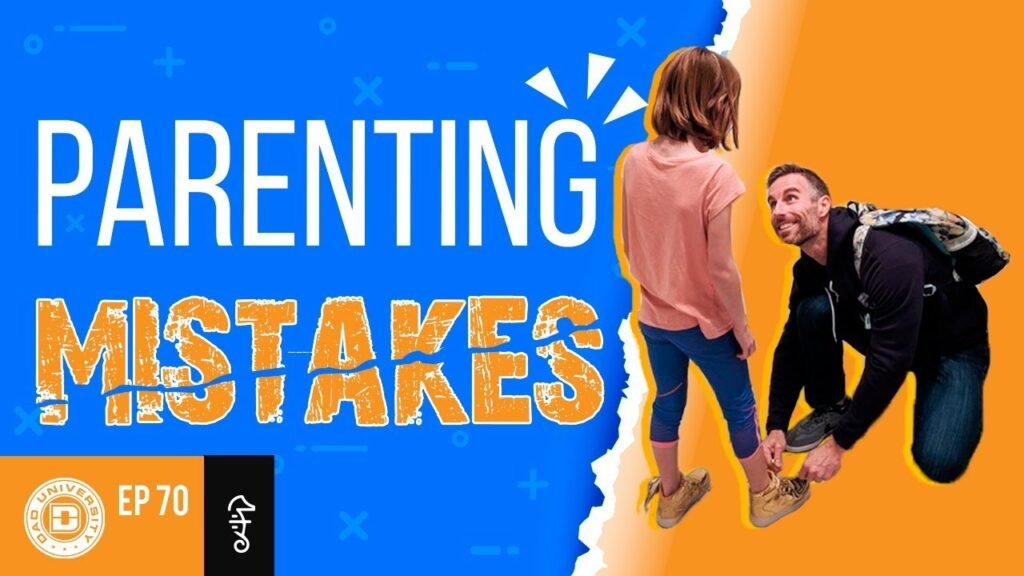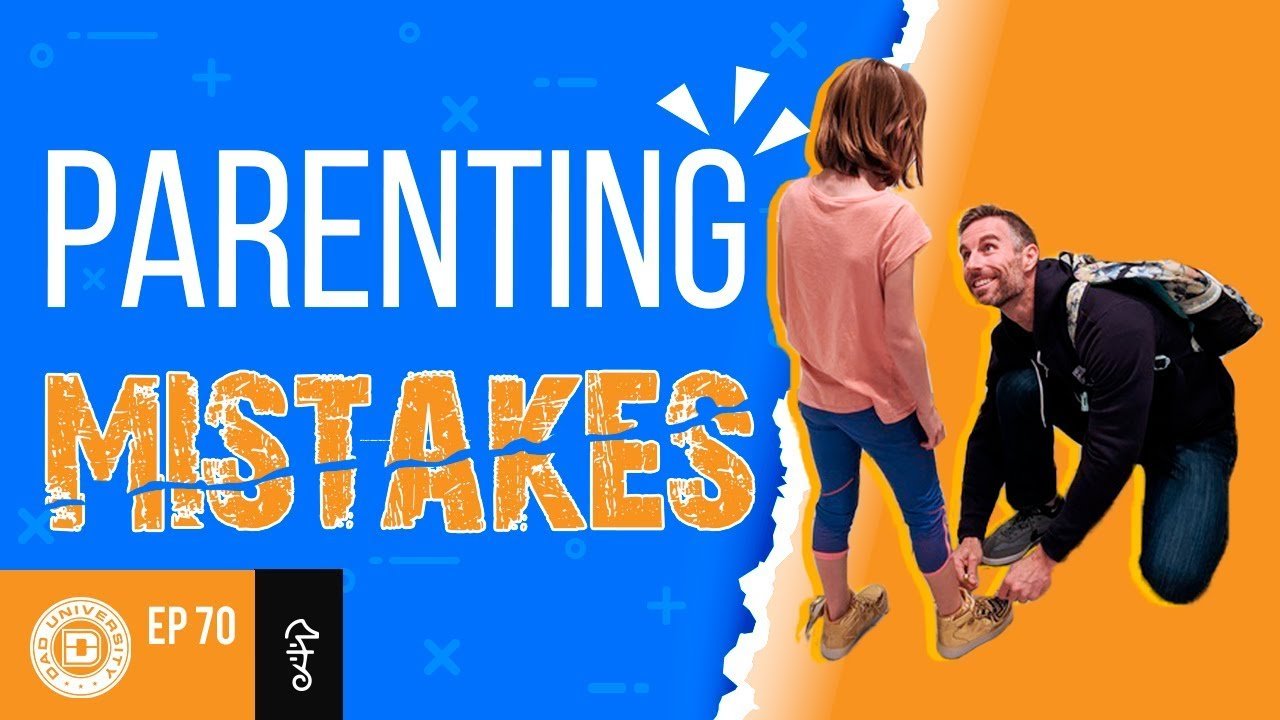Parenting and mistakes go hand in hand, and it’s important to recognize that we all make parenting mistakes. In this video by Dad University, Jason discusses common parenting mistakes that nearly all of us are guilty of. While our intentions as parents may be good, it’s crucial to learn from our mistakes and understand what is best for our children. From telling them you’re proud to doing too much for them, these are mistakes we need to avoid in order to positively influence our children’s development.
As a parent myself, I understand the challenges of navigating through the world of parenting. It’s crucial to acknowledge our mistakes and strive to improve for the sake of our children. By being aware of these common parenting mistakes, we can take the necessary steps to provide our children with the guidance and support they truly need.

Parenting Mistake: Saying ‘I’m So Proud of You’
As a parent, it may seem natural to express your pride in your child’s accomplishments by saying “I’m so proud of you.” However, it is essential to understand the impact of this phrase on your child’s self-esteem and self-worth. Instead of relying on external validation, encourage your child to feel proud of themselves. By shifting the focus from your pride to their self-pride, you empower them to build confidence and believe in their abilities without constantly seeking approval from others. Celebrating their achievements by affirming that they should be proud of themselves reinforces a positive self-image and fosters a sense of internal validation.
Parenting Mistake: Doing Too Much for Them
It is common for parents to underestimate their child’s capabilities and, as a result, end up doing too much for them. While the intention is often to help and protect, overparenting can hinder a child’s development of independence and self-reliance. Children are capable of more than we often give them credit for, even at a young age. Allowing them to take on age-appropriate responsibilities and tasks helps build their confidence, problem-solving skills, and resilience. By giving them the opportunity to do things on their own, you are promoting their growth and development in a healthy way.
Parenting Mistake: Not Leading by Example
Leading by example is a crucial aspect of parenting that is sometimes overlooked. Children learn more from observing your actions than from hearing your words. It is essential to practice what you preach to instill values and morals in your children effectively. Demonstrating the behavior you want to see in your child sets a positive example and reinforces the importance of consistency between words and actions. By avoiding hypocrisy and aligning your behavior with your teachings, you cultivate a culture of trust, respect, and integrity within your family.
Parenting Mistake: Prioritizing Friendship Over Parenting
While building a strong and healthy relationship with your child is important, it is equally crucial to establish boundaries and rules as a parent. Balancing mentorship with a friendship dynamic can help create a supportive and nurturing environment for your child’s growth and development. Setting clear expectations, enforcing consequences, and providing guidance are essential aspects of effective parenting. By maintaining a role of authority and structure while fostering a strong bond with your child, you create a harmonious relationship built on respect and mutual understanding.
Parenting Mistake: Overlooking Nutrition
The importance of nutrition in a child’s development cannot be overstated. Parents play a significant role in teaching children about healthy food choices and instilling good eating habits from a young age. By setting a positive example through your own dietary choices and meal practices, you show your children the importance of balanced nutrition and its impact on overall health and well-being. Encouraging healthy eating habits early on can lead to long-term benefits for your child’s physical and mental health.
Parenting Mistake: Solving Their Problems
As parents, it can be tempting to swoop in and solve every problem or challenge your child faces. However, allowing children to experience and navigate difficulties on their own is essential for their growth and development. Encouraging problem-solving skills in children empowers them to become independent, resilient, and resourceful individuals. By stepping back and providing guidance rather than immediately solving their problems, you help your child build crucial skills such as critical thinking, decision-making, and coping with adversity.
Parenting Mistake: Allowing Behavior to Affect You
Maintaining emotional stability and self-control in the face of challenging behaviors from your children can be a daunting task. It is essential to prioritize your well-being and mental health by not allowing their behavior to negatively impact your mood and emotional state. By practicing self-control, setting boundaries, and managing your reactions, you model healthy coping mechanisms for your children to learn from. Remember that you have the right to maintain emotional stability and not let external circumstances dictate your inner peace.
Conclusion
Parenting is a continual learning journey filled with inevitable mistakes. By recognizing and acknowledging these common parenting mistakes, you demonstrate a willingness to grow and improve as a parent. Self-reflection and self-awareness are essential in the parenting process, as they enable you to learn from past errors and make positive changes for the future. Ultimately, the goal of parenting is to raise confident, resilient, and well-rounded children who are equipped to navigate life’s challenges with grace and determination. Embrace the learning process, embrace your mistakes, and strive to create a nurturing and supportive environment for your children to thrive.

